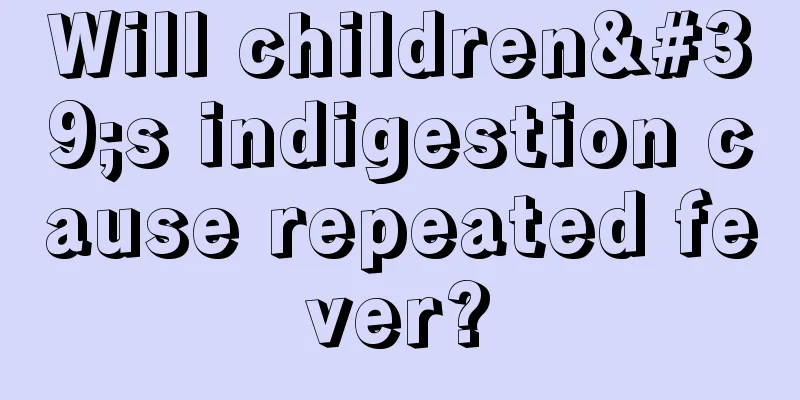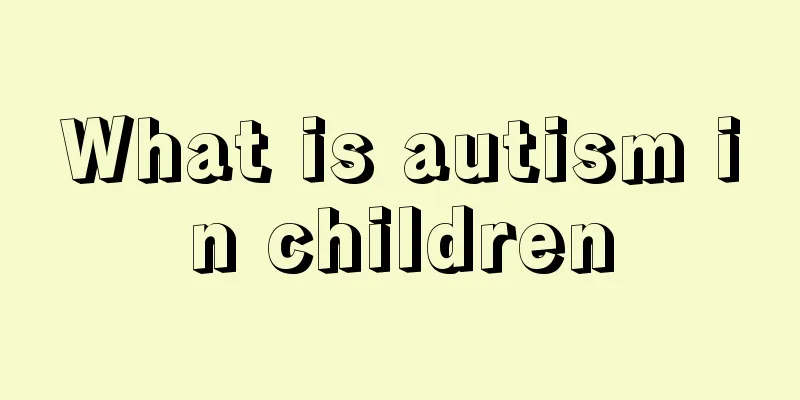Reasons why seven-month-old babies sweat when sleeping

|
In fact, when taking care of your baby, you should pay attention to his every move, because the baby does not know how to express his discomfort at the beginning, so special attention needs to be paid. If night sweats occur, you should go to the hospital for examination in time. Let us understand the reasons why seven-month-old babies sweat while sleeping. It is common for babies to sweat during sleep, and it is not always a symptom of weakness or illness. Many parents believe that their children’s constant sweating is due to their weak constitution. In fact, a considerable number of children suffer from physiological hyperhidrosis. Physiological hyperhidrosis is more common in the head and neck, often occurring within half an hour after falling asleep, and sweating stops in about an hour. Infants and young children have an active metabolism and are active and lively. Some of them cannot rest even after going to bed at night, so they may sweat on their heads after falling asleep. The so-called physiological hyperhidrosis refers to sweating during sleep when the child is well-developed, healthy, and has no disease. Parents are often accustomed to deciding the best environmental temperature for their children based on their own subjective feelings, and like to cover their babies with more blankets and keep them tightly covered. Because children's brain and nervous system are not yet fully developed and they are in the growth and development period, their body metabolism is very active. Coupled with the stimulation of overheating, they can only regulate normal body temperature by sweating to evaporate the heat in the body. In addition, drinking milk, malted milk or eating chocolate before going to bed can also cause sweating in children. Some parents give their children milk, malted milk, etc. before they go to sleep. After the child falls asleep, the body produces a large amount of heat, which is mainly dissipated through sweating through the skin. In addition, too high room temperature or excessive warmth can also cause children to sweat while sleeping, which are all physiological sweating. Pathological sweating occurs when the child is in a quiet state, such as sweating caused by rickets, which manifests as obvious sweating on the child's head in the first half of the night after falling asleep. Because the pillow is irritated by sweat, babies often shake their heads and rub against the pillow when they sleep, resulting in sparse hair and loss of hair on the pillow, forming typical annular hair loss on the pillow, which is medically known as "occipital baldness". It is an early manifestation of rickets in infants. As long as vitamin D and calcium are supplemented in time, rickets can be controlled and sweating will stop by itself. If a child sweats not only in the first half of the night but also in the second half of the night and before dawn, it is usually a sign of illness, the most common of which is tuberculosis. Tuberculosis also has other symptoms, such as low fever, fatigue, loss of appetite, flushed cheeks, etc. Children with tuberculosis tend to sweat easily during daytime activities, which is called spontaneous sweating, and sweating at night is called night sweats. If you suspect your child is infected with tuberculosis, a lung X-ray or a tuberculin test should be done for timely diagnosis and treatment. Children with weak constitutions often sweat in patches on their head, chest, and back when they are active during the day or after falling asleep at night. It is often caused by malnutrition due to improper feeding or poor digestion and absorption. In terms of nursing, attention should be paid to adjusting feeding methods, promoting children's appetite, and increasing the intake of protein, fat and sugar. If necessary, traditional Chinese medicine can be used to regulate spleen and stomach disharmony. The above article gives you a detailed introduction to the reasons why seven-month-old babies sweat while sleeping. I believe everyone has a preliminary understanding. Therefore, in daily life, if your baby has such a situation, do not ignore it and find out the reason. |
<<: What are the symptoms of calcium deficiency in teenagers?
>>: What are the symptoms of calcium deficiency in a seven-month-old baby?
Recommend
What is the situation of baby's hair sweating easily?
Some mothers of babies see that their baby's ...
Baby always walks on tiptoe
Many parents may buy a walker for their baby when...
What to do if your baby's eyes are stung by peppers
Chili is a seasoning vegetable often used in peop...
How old is it good for children to drink milk?
It is good for children to drink milk regularly b...
How to cook duck meat for babies
The chewing function and digestive system develop...
What are the symptoms of hernia in boys?
Many mothers are always worried about their child...
Diagnosis of active tuberculosis in children
Active tuberculosis refers to new smear-positive,...
How to cure hoarseness in children?
We know that the affected part is the vocal cords...
Where are the moxibustion points for children's cough?
The weather changes a lot now, so it is easy for ...
How to care for children with albinism and good strategies to help them recover
More and more people are suffering from albinism,...
What are the effects of divorce on children?
With the development of society, people are very ...
The best time for children to supplement zinc, parents will remember it after reading this!
Zinc is essential for children to develop healthi...
Three-year-old child twitches while sleeping
Young children are often prone to some diseases. ...
Farting is painful for newborns
We all know that the digestive system of newborns...
How to identify cerebral palsy in premature infants
Cerebral palsy is a highly chronic brain disease ...









